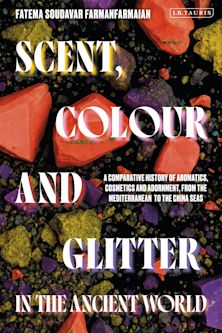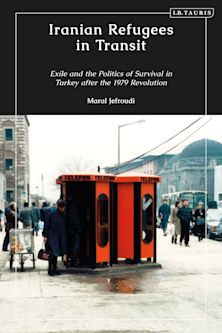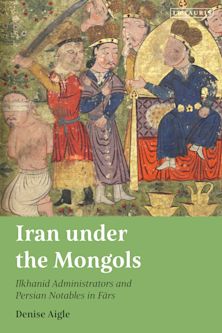- Home
- ACADEMIC
- Middle East
- Iran
- Imagine a Nation
Imagine a Nation
Six Persian Poets in Search of a Homeland
Imagine a Nation
Six Persian Poets in Search of a Homeland
You must sign in to add this item to your wishlist. Please sign in or create an account
Description
From Ferdowsi to Rumi and Hafiz, poetry has played a central role in the historical Iranian cultural imagination. How have contemporary poets contributed to this imagining of a nation, in the context of the twentieth century and its momentous events?
In this book, Hamid Dabashi interrogates the oeuvre of six major poets: Nima Yushij (1895-1960), Mehdi Akhavan-e Sales (1929-1990), Ahmad Shamlou (1925-2000) Forough Farrokhzad (1934-1967), Sohrab Sepehri (1928-1980) and finally Esmail Khoi (1938-2021). Reading their works in the context of Iranian political history, from the Constitutional Revolution to the Iranian Revolution and beyond, he interprets their poetry as exercises in imagining an Iran that was still emerging and being contested. Providing an original theoretical and critical interpretation of modern Iran's most well-known poets, based on his own translations from the Persian originals, this book will be essential reading for students and scholars of Persian literature and Iranian studies.
Table of Contents
Chapter One Nima Yushij: The Archetypal Event
Chapter Two Mehdi Akhavan-e Sales: Remembrance of Things Past
Chapter Three Ahmad Shamlou: The Troubadour of a Homeland to Come
Chapter Four Forough Farrokhzad: The Poetics of the Present
Chapter Five Sohrab Sepehri: A Metapoetic of Presence
Chapter Six Esmail Kho'i: The Voice from Nowhereville
Conclusion Six Persian Poets in Search of a Homeland
Product details
| Published | 30 Oct 2025 |
|---|---|
| Format | Ebook (Epub & Mobi) |
| Edition | 1st |
| Extent | 272 |
| ISBN | 9780755655649 |
| Imprint | I.B. Tauris |
| Publisher | Bloomsbury Publishing |
About the contributors
Reviews
-
Hamid Dabashi's Imagine a Nation: Six Persian Poets in Search of a Homeland is a much-needed tour de force, which breathes life into the greatest poets of twentieth-century Iran with a vision that is both authentic and compelling. It offers the best of both worlds of analysis and translation. One hopes that Dabashi's rare combination of theoretical sophistication and exquisite translation skills, which are demonstrated in this study of a poetic movement that has been underestimated for too long, will inspire a new generation of scholars to unshackle themselves from Orientalist lenses on their own poetic heritage.
Jawid Mojaddedi, Professor, Rutgers University, USA
-
A deeply personal book that introduces readers to Six seminal Persian poets from the 20th century while putting in question our literary critical assumptions about periodization, genre, and aesthetics. It touches on the meaning of poetry and imagination by tracing the emergence of a sublime political-and poetical-consciousness that shaped an entire generation of scholars and artists in Iran and beyond. A tour de force!
Tarek El-Ariss, Professor, Dartmouth University, USA

ONLINE RESOURCES
Bloomsbury Collections
This book is available on Bloomsbury Collections where your library has access.


































